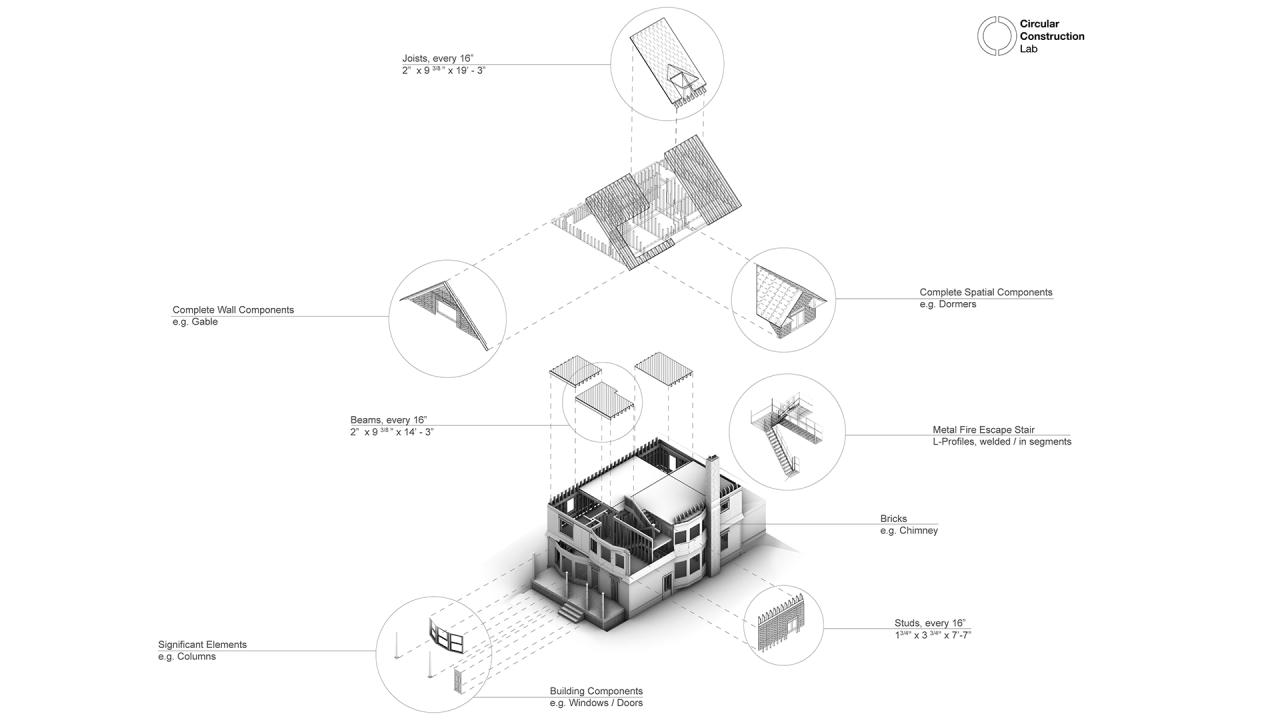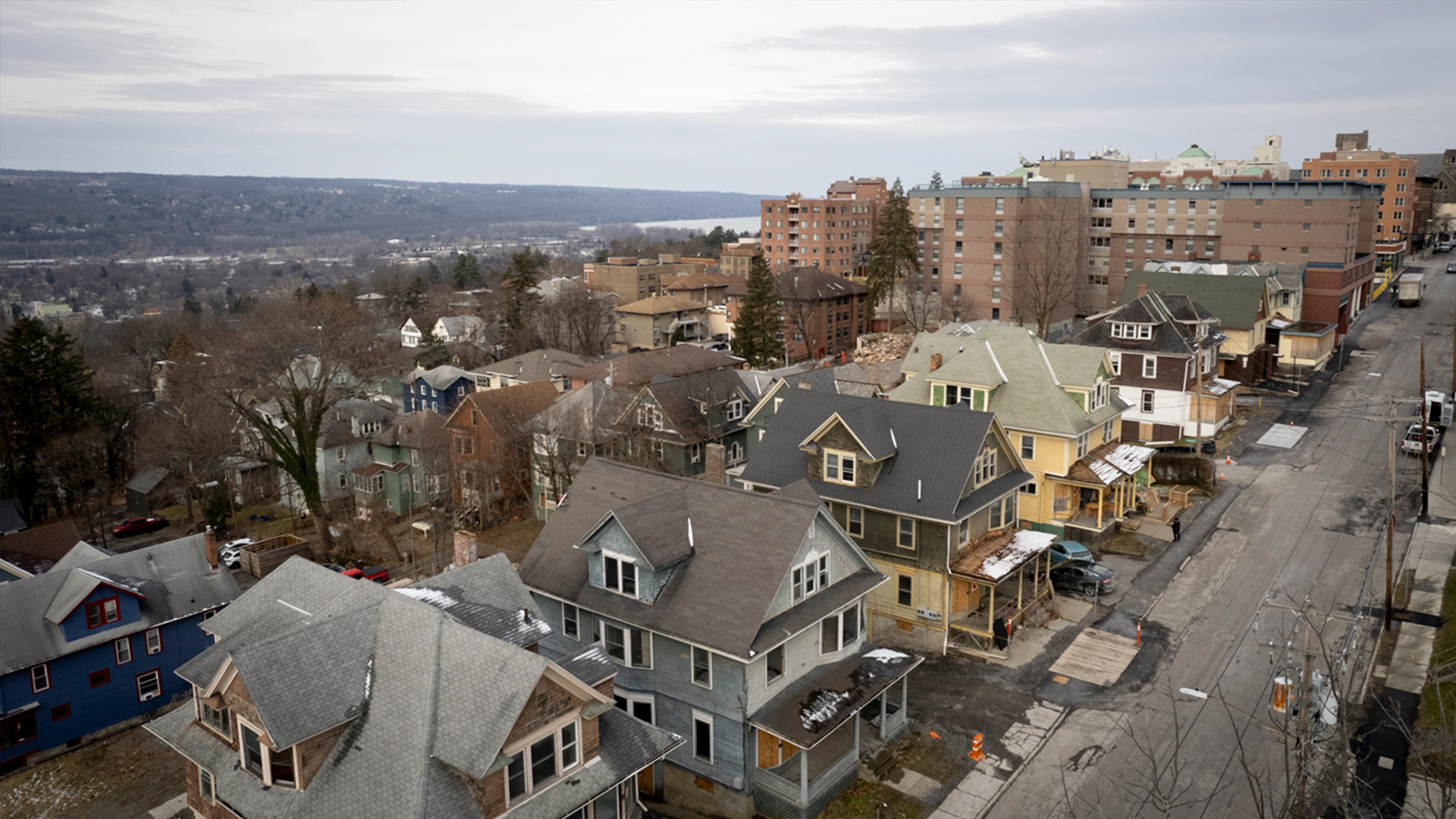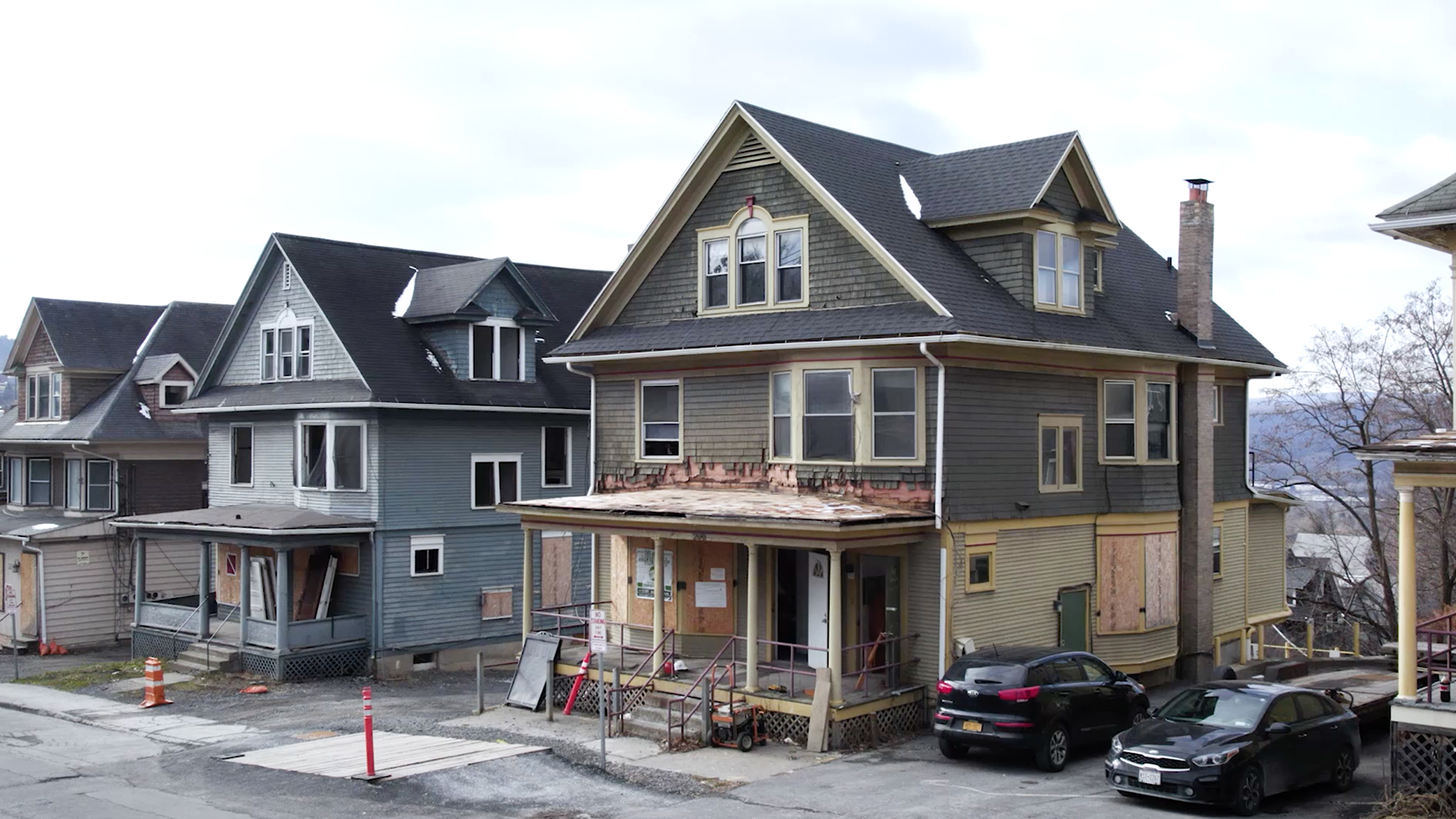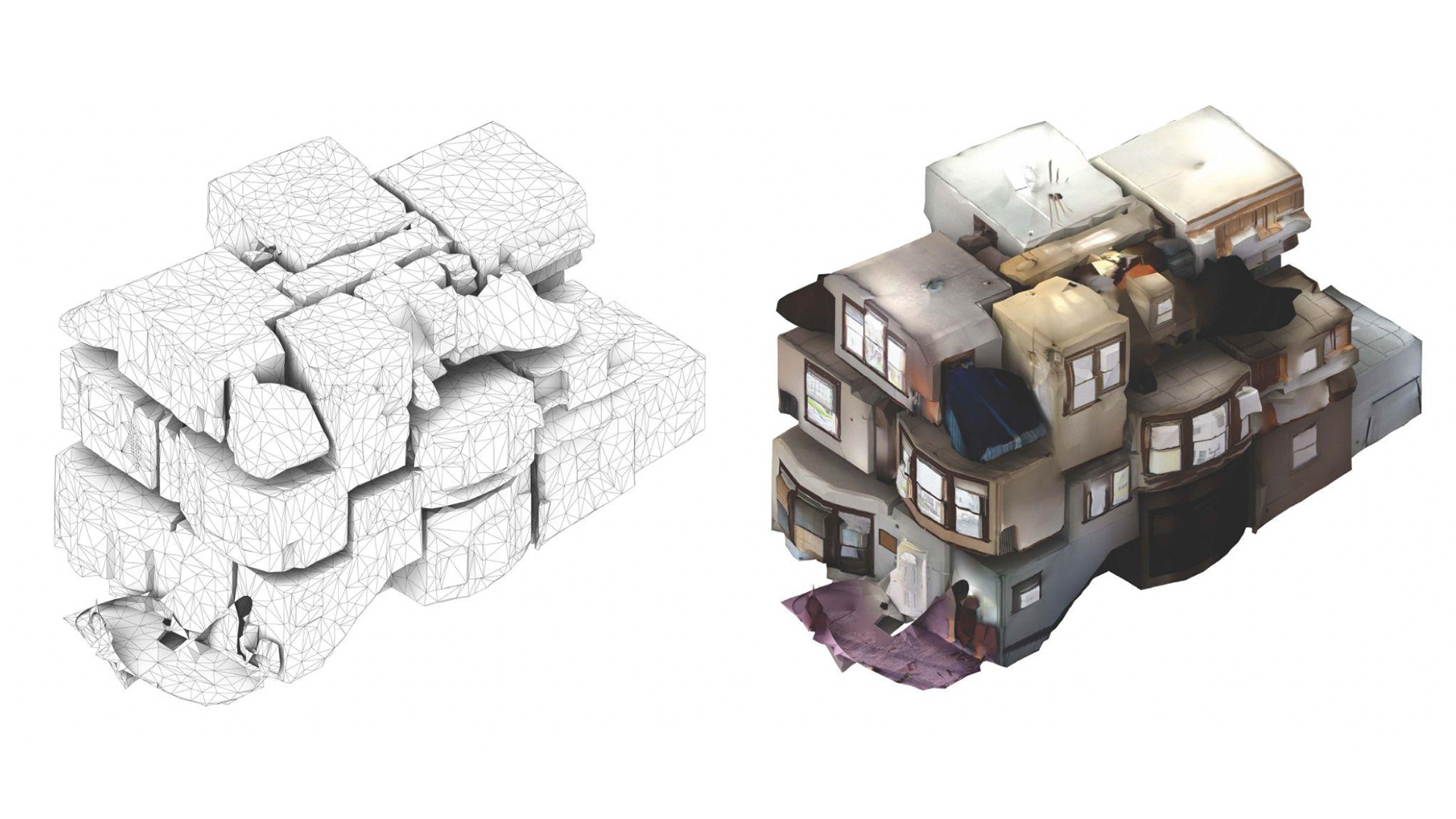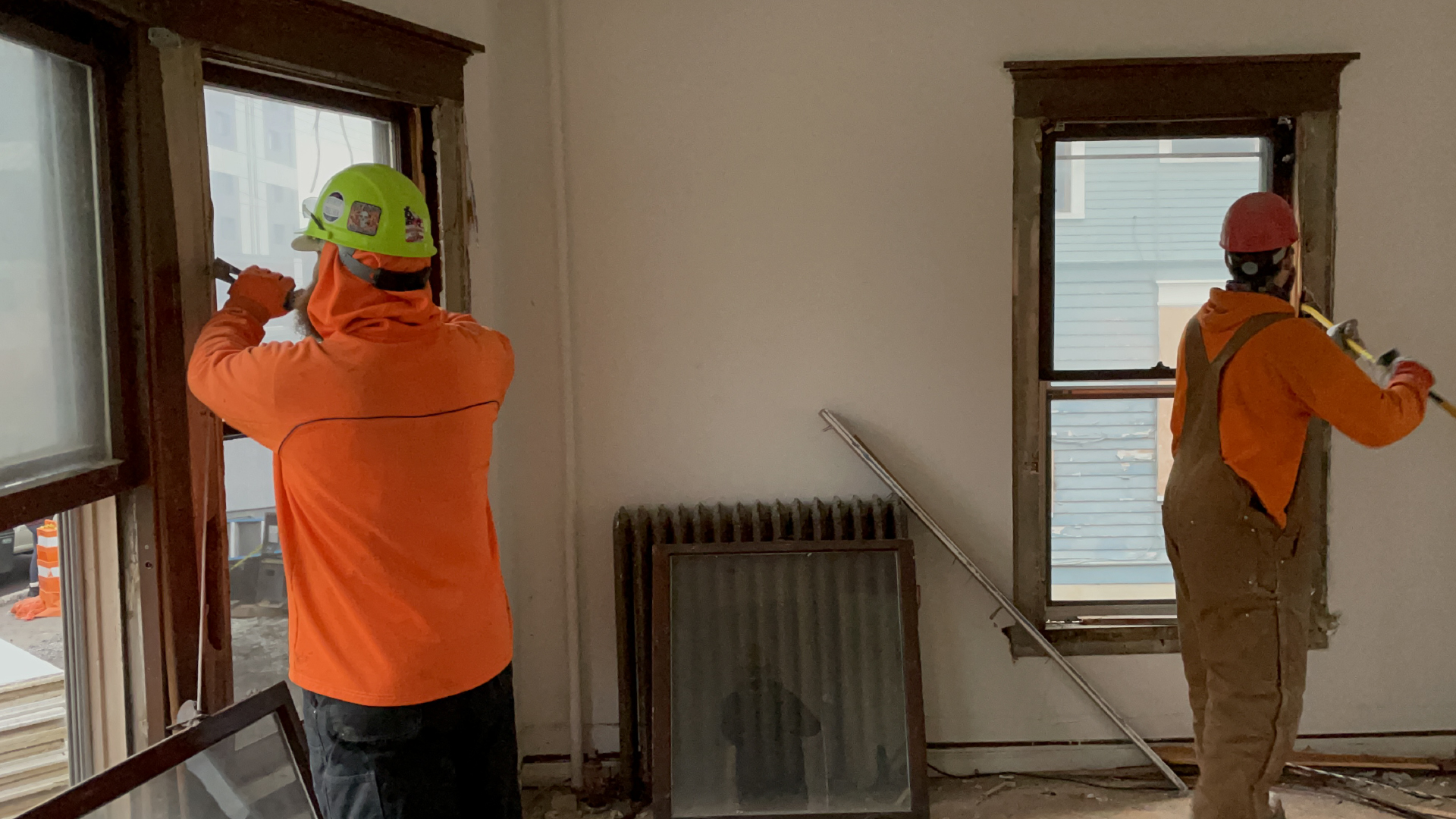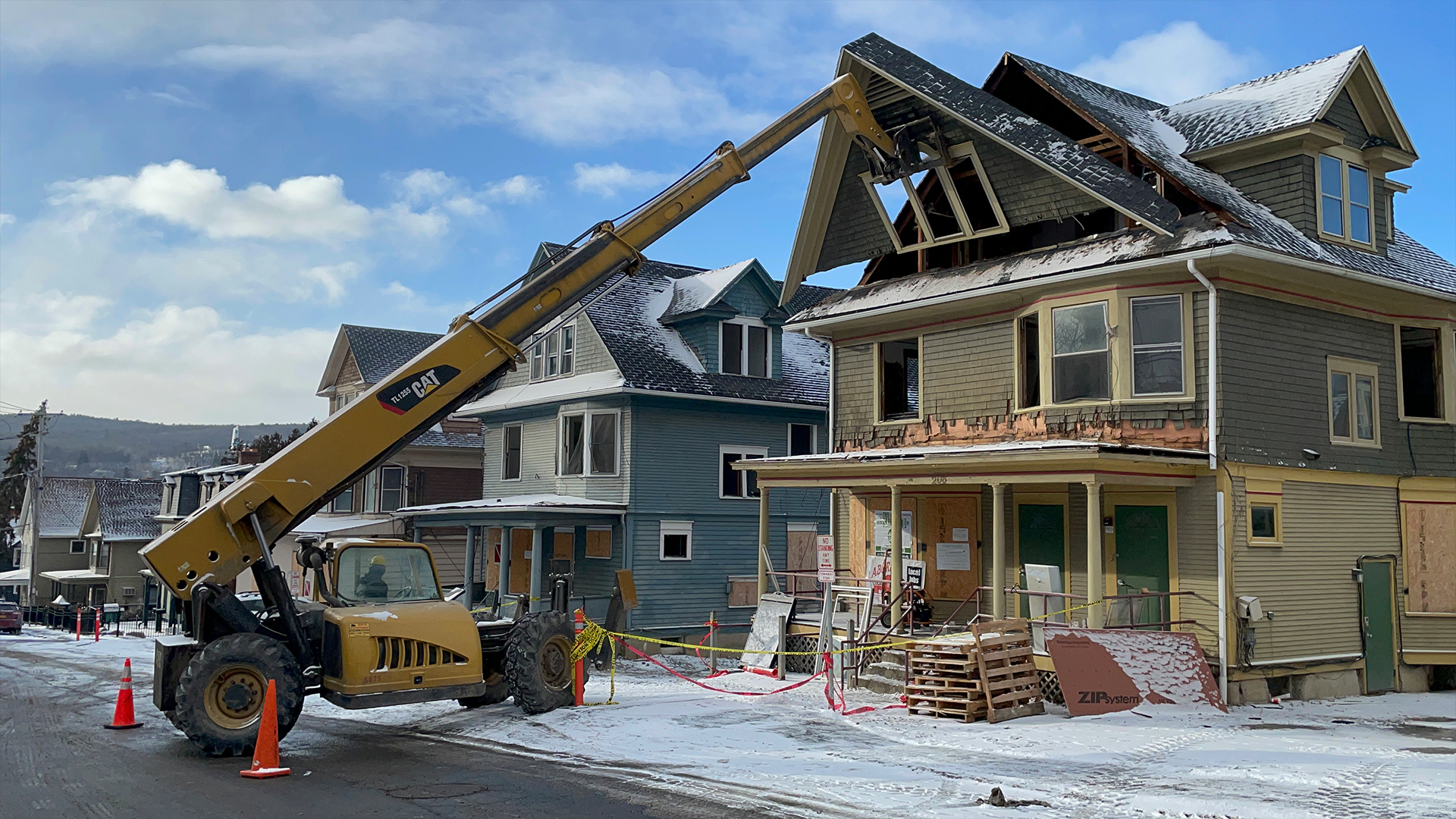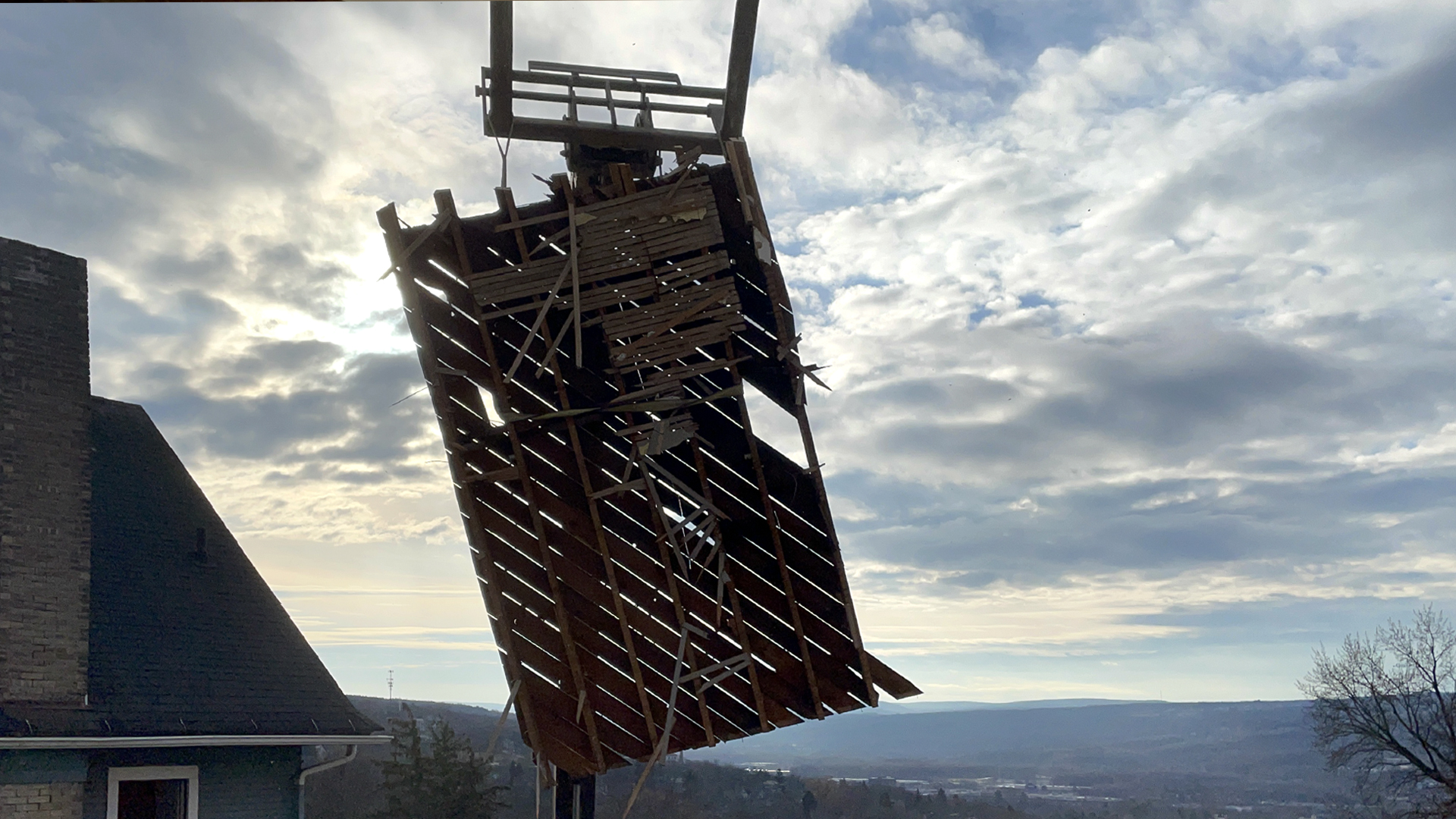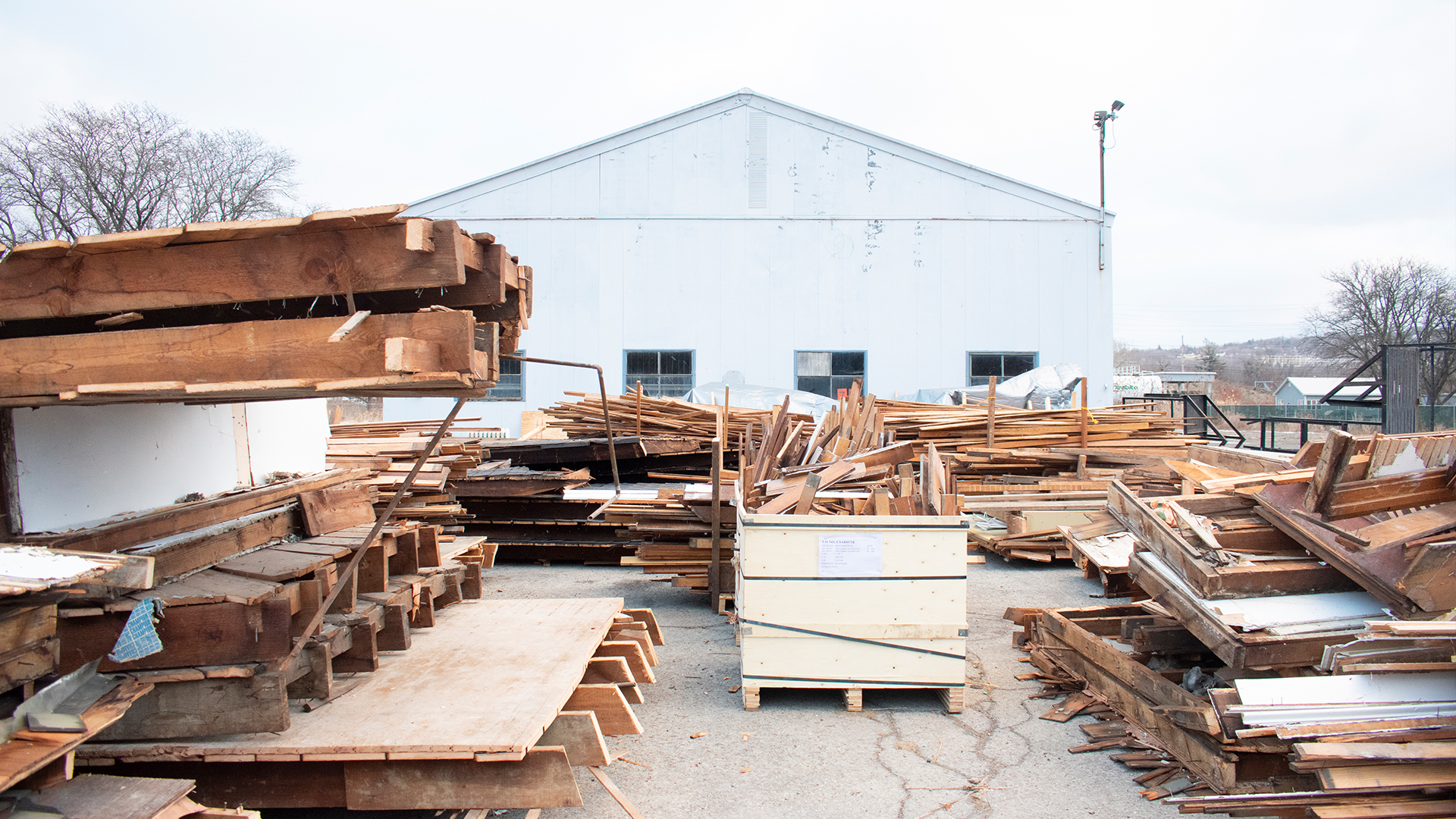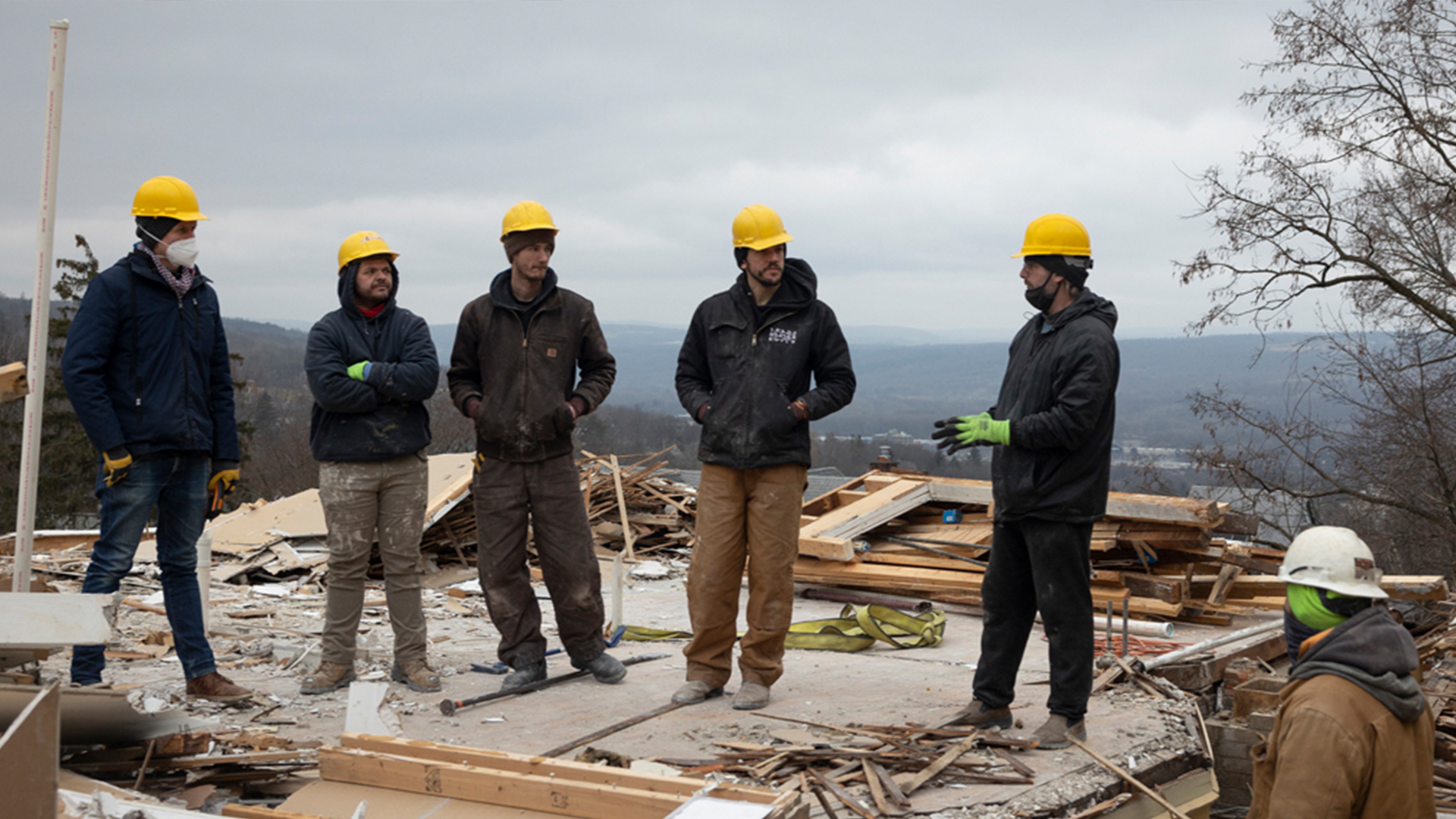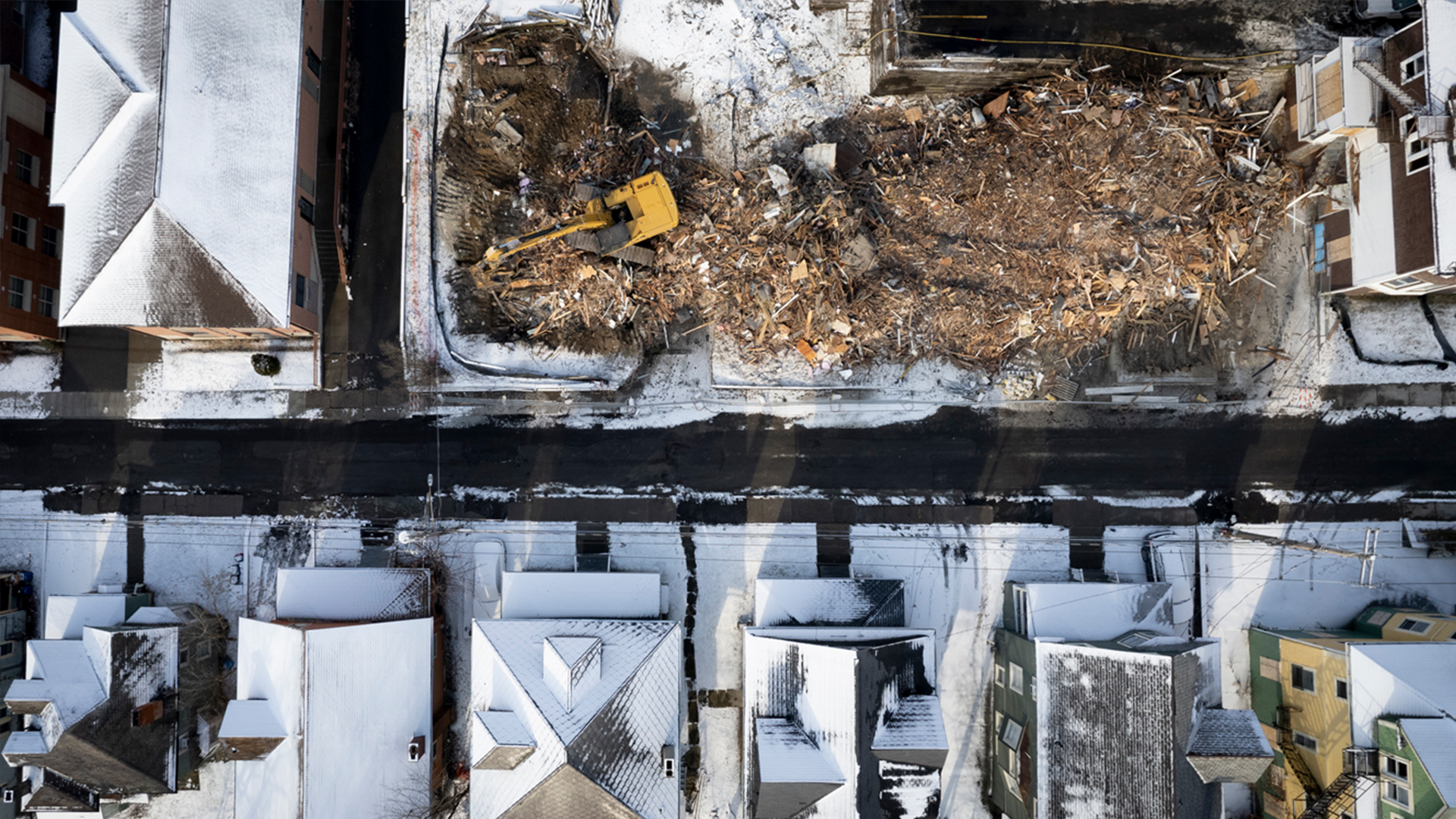In October 2020, the Circular Construction Lab brought together a group of community organizations (SC Johnson College of Business, Finger Lakes ReUse, Ithaca NHS, Cornell Cooperative Extension, TAITEM Engineering, Trade Design Build) as partners on an Engaged Cornell Grant (ECG) with the “specific aim to investigate the circular potentials of the local built environment by researching and proposing methods for material reuse and recycling, reversible construction, reactivating embodied values, creating green jobs, and reinventing the underlying business models of construction.”
One such project is the Catherine Commons Deconstruction Project on College Avenue, where the development of 300 new housing units led to the planned demolition of 11 residential structures originating from the year 1910. In close collaboration with the principal developer, the Circular Construction Lab and students from Cornell’s Department of Architecture began documenting and cataloging the existing structures for their reuse and deconstruction potential, using a newly developed Deconstruction and Salvage Survey Toolkit (ScanR S&D Survey). With the help of experts from the Seattle-based Building Deconstruction Institute, the group was then able to convince the building owner to deconstruct - instead of demolish - one of the structures (206 College Avenue) in a broad coalition of local stakeholders lead by community partners Finger Lakes Reuse and Trade Design Build.
Over the course of five days in January 2022, a crew of up to eight workers methodically carved the 420-square meter, 13-bedroom structure into sections from top to bottom. Panels of roof, walls and floor as large as 2.5 by 5.5 meters were lifted on a flatbed and hauled to a local warehouse for the materials to be processed, salvaged and eventually resold. The chosen process - panelized deconstruction - incorporates the use of heavy machinery in an effort to minimize time on-site by relocating specific steps to off-site locations. Instead of unbuilding a structure element by element in its original location, the process relies on calculated and careful incisions that divide the structure safely into the biggest (and most profitable) panels allowed for transport on public roads.
The Catherine Commons Deconstruction Project is unique as it allows a side-by-side comparison of demolition and deconstruction processes on almost identical buildings within the same economic setting. The case study includes comprehensive research on deconstruction’s local potential, documenting everything from the quantity and quality of materials saved to the resale market, the time and labor required, and the total cost – including environmental and social costs that are typically not factored into construction and demolition budgets. The generated data will provide a much-needed insight into the existing barriers, limitations and potential benefits of implementing deconstruction. Answering the need for a deeper economic understanding, the results are also informing the development of a business analysis addressing the scalability of the process and the impact of an economy of scale on these economics. Combined, the research will help inform local policy proposals that, if enacted, will make Ithaca one of a small number of cities in the USA prioritizing material and building reuse over downcycling and landfilling.



